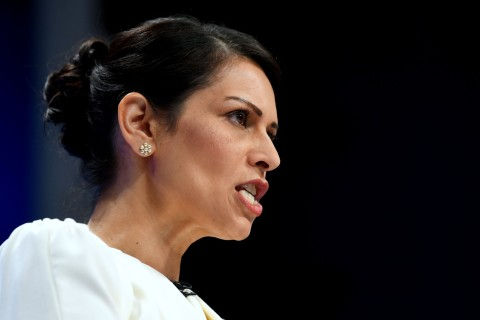Have we gained equality between the sexes?
- Sowmiya Baskaran
- Feb 15, 2021
- 5 min read
As explained in the previous article what feminism means includes what feminist goals are: to gain equality between the sexes. However, the feminist goal is very broad.
The feminist movement goals extend through different contexts of society, such as social, economic, education and political. Achieving the goals is one difficult task as we have seen throughout our history and yet with changes there continues to be loopholes. While many females from western cultures can experience greater levels of equality ( but there are inconsistencies), others especially those in developing countries are very far behind in reaching even basic levels of equality as seen in Yemen where females cannot leave the house without their husband’s permission.
Economic Achievements
Feminists want the gender pay gap to be narrowed. To tackle the problem of pay gap and sexism regarding what jobs a female can do was mitigated through a series of legislation. The Equal Pay Act 1970 (& 1975) ensured that females got paid the same as their male counterparts for doing the same job.
Seems like they finally got some form of justice after all those years of protest and strikes.
However, there were some employers who raised female wage rates to the lowest male wage rates, even when female jobs were more demanding than the male jobs, or by creating different job titles for the females to avoid paying females equal wages for equal work. The problem continues to exist here. The UK continues to have one of the highest wage gaps in Europe whereby females earn 15.5% less than males. This means that, in practice, it is very difficult to achieve true equality of pay in the workplace and thus closing the gender pay gap has not yet been achieved.
The Employment Protection Act (1975) was a further breakthrough for feminists because it gave females a right to maternity pay and dictated that employers could not sack females simply because they had children. This meant that females enjoyed personal freedom and took advantage of workplace opportunities. Despite strong employment legislation that protects pregnant women from discrimination, half of the 440,000 pregnant women in 2004-5 experienced discrimination in Great Britain, with 30,000 being forced out of their jobs altogether. This is not necessarily the path feminist wanted the breakthrough to lead to.
Furthermore, there is very little equality between the sexes in terms of maternity and paternity leave. There has been change to allow for a further 26 weeks’ additional paternity leave, however this provision has not been utilised much. This is partly because of cultural assumptions which perceive childcare as a female's job. Also, there are financial reasons for the additional paternity leave being used less. Given what we know about average wages in relation to gender, this often means that many families consider it is better that (the usually) lower paid women take the leave rather than higher earning men. This is evidence to suggest that there is no economic equality between the sexes in the 21st century.
Political Achievements
There is a need to have more female issues to be discussed in Parliament. This gets greatly dismissed by politicians. The ‘second wave feminism’ movement in the 1960s lacked clear political ‘champions’ in Parliament. Ministers like Barbara Castle and former Prime Minister Margaret Thatcher were not willing to champion feminist causes, for fear of wanting to be categorised as single issue politicians only interested in gender issues.
This is not so much the case anymore. We have figures such as Carroline Lucas MP and Jess Philips who advocate for women issues in Parliament. Despite Alexandria Ocasio-Cortez and Kamala Harris being US political figures and thus playing a significant influence in US politics, their social media presence plays a significant role in women issues in other jurisdictions as well. Advocacy of such ensures sex specifc struggles are handled in a male dominated environment and challanged instead of being ignored which is usually the case.
There continues to be a lack of female politicians in UK Parliament which is greatly concerning. In the 2019 election, 220 women were elected as MPs, compared to 429 men. This is a record for female representation and should be celebrated as such, but the House of Commons still falls short of an equal gender balance. It was astounding to find that the Labour party returned more women than men to parliament, at a ratio of 104:98. This dismantles prejudices that have previously impeded the selection of women and delivers more equal representation in the first-past-the-post electoral system. The Conservative party, on the other hand, has just 87 female MPs compared to 277 male MPs: a proportion of less than a quarter. This figure is rather disappointing.
One of the reasons for such low female turnouts could be a result of there not being maternity leave for specifically Secretaries of State. It comes to a surprise to many of us that currently there are no rules regarding Secretaries of States to have time off work, including maternity leave. As a result, if long periods of time of work is required for a senior cabinet minister, they must offer a letter of resignation. This acts as a glass ceiling almost in their political careers for many female Secretaries of States. I would hope most of you would have seen Jo Swinson, the former leader of Liberal Democrats, bring her son to parliamentary debates and campaigns. She hoped to send a message to Parliament that there ought to be flexibility in the political worklife for those who have young children. This in some way reinforces the idea that women have to choose between their career and having a family. This would have acted as a deterrent for some female politicians to go out to work in politics, because they would be sacrificing some of their capacity to do work at home by having a job.
It is only now that the government has decided to bring this matter up with MPs by introducing Ministerial and other Maternity Allowances Bill. Currently, Attorney General Braverman would be the first senior member of Cabinet to be granted a 6 months maternity leave. This is a massive change in momentum in the cross section of politics and employment in Westminster.
When it comes to feminism and politics it can be seen that most of the political goals were achieved in the 20th Century by getting the right to vote and having women in politics in senior positions. However, the problem remains that there are not enough females. Females continue to be inferior to males in politics and matters relating to females in politics continue to be far behind.
Although not discussed here, females achieved equality in lengths in the 20th Century through the series of Government legislation and feminist movements like the Dagenham strike of 1969. They had achieved the rights to vote, better pay and social freedom. However, this was not absolute equality as there continues to be major inequality in 2021 which continued to be voiced by feminists but the momentum of change continues to be slow.




Comments